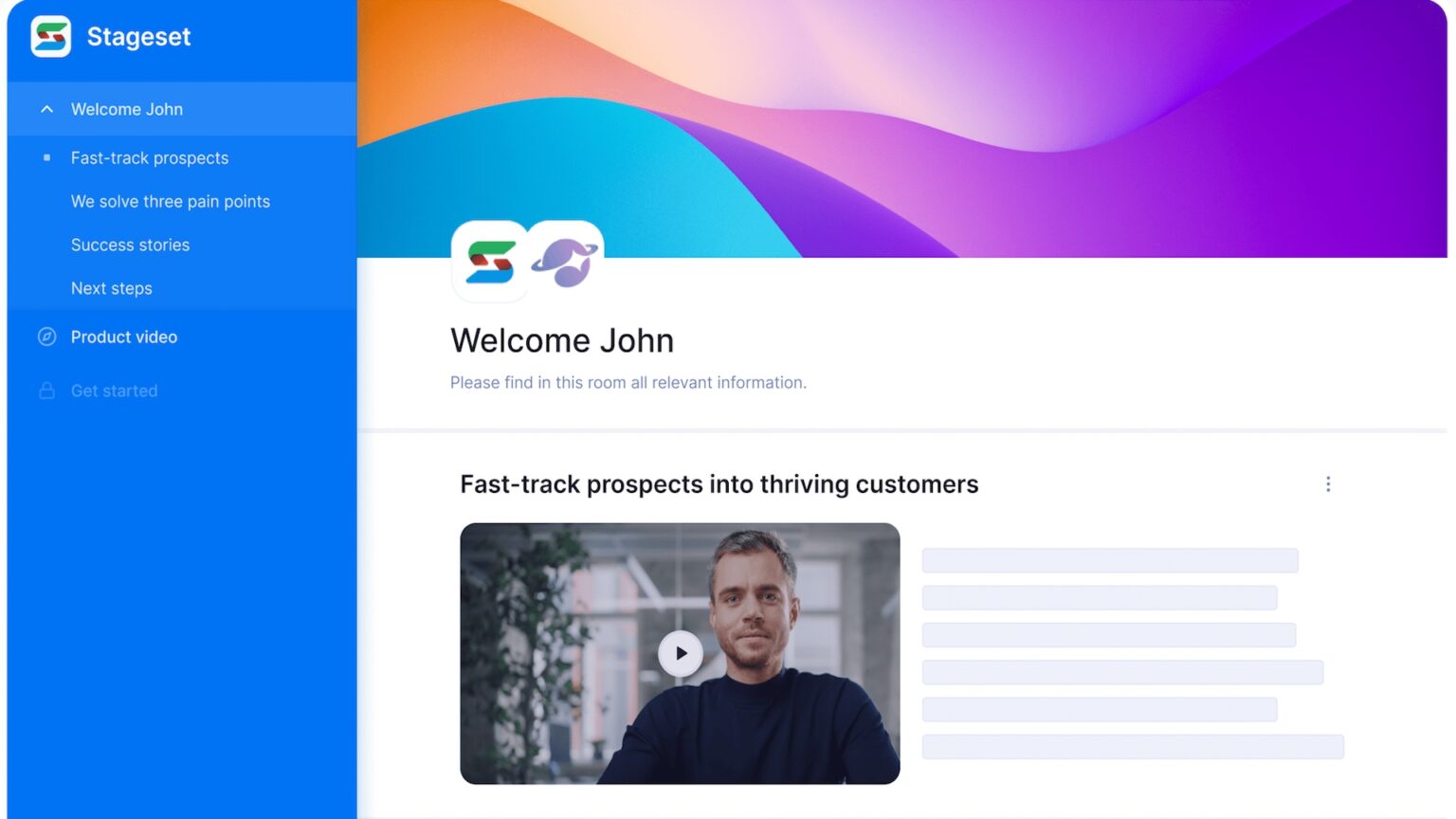When chasing those DJ-related sales, there’s more than one step in the sales funnel, of course.
Depending on what process you follow, there could be anywhere between four to seven funnel steps (keep it as low as possible, please) that you use in order to drive your lead to that final step, the step that generates the Zoom Videocall in order to convert your lead into a sale.
Most of you DJ/operators push people towards your website, which can be a good thing if your website is up-to-date and has good CTAs (Calls To Action) sprinkled throughout the site. However, there’s another funnel destination that you all should at least consider… the dedicated Digital Sales Room.
For those of you who aren’t aware, a Digital Sales Room (also known as a Virtual Sales Room or Digital Sales Environment) is an online platform or software solution that facilitates and enhances the sales process for businesses and their customers. It combines various digital tools and features to create a virtual space where sales teams and potential clients can interact, collaborate, and make informed purchasing decisions. Here are some key aspects and features of a Digital Sales Room:
- Content Sharing: Digital sales rooms enable the sharing of various types of customer-specific content, such as product brochures, videos, presentations, and documents, to provide potential customers with detailed information about products or services.
- Interactive Presentations: They often include interactive presentations and demonstrations that allow sales representatives to showcase their offerings effectively. These can include 3D product visualizations or interactive product tours.
- Real-Time Communication: Digital Sales Rooms may incorporate chat, video conferencing, or messaging tools to facilitate real-time communication between salespeople and clients. This helps answer questions and address concerns promptly.
- Document Management: Sales teams can upload and manage important sales documents, contracts, and proposals within the Digital Sales Room, streamlining the negotiation-and-agreement process.
- Analytics and Tracking: Many digital sales rooms provide analytics and tracking capabilities, allowing businesses to monitor how customers interact with the content and make data-driven decisions to improve their sales strategies.
- Security: Security features are crucial to protect sensitive sales data and customer information. Digital sales rooms often have encryption, access controls, and other security measures in place.
- Collaboration: They may support collaboration among team members and external partners, making it easier to work together on deals, proposals, and presentations.
- Customization: Digital Sales Rooms can often be customized to match a company’s branding and specific sales needs. This can include custom templates, branding elements, and workflows.
- Automation: Some Digital Sales Rooms incorporate automation features to streamline repetitive tasks, such as sending follow-up emails or reminders.
- CRM Integration: Integration with Customer Relationship Management (CRM) systems is common, allowing for seamless data transfer and better customer management.
Overall, a Digital Sales Room aims to create a virtual space that replicates and enhances many aspects of the traditional sales process, making it more efficient, effective, and user-friendly for both sales teams and customers. It is especially valuable in situations where in-person meetings are not feasible or when businesses want to leverage digital technology to improve their sales efforts.
Most importantly, a Digital Sales Room allows you to create a sales environment for either a dedicated customer target class, or even a specific client. Whereas your website might display your packages without discerning between Wedding, Mitzvah, Corporate, School, etc., a Digital Sales Room allows you to create sales environments to address each of these classes specifically.
Now that you’re sold on the need for Digital Sales Rooms for your DJ brand, what’s your next step? There are actually more than a few platforms out there for creating and managing these. The one I personally use, though, is as follows:
Meet Stageset.
Stageset is a tool that I recently subscribed to that offers all the current state-of-the-art functionality that is expected from such a platform. In no particular order…
- Sales Room creation & management
- Page creation and full text editing, including titles and paragraph text
- YouTube video embedding
- File sharing
- Document embedding
- E-signature signing for contracts
- Pre-formatted blocks, drag-n-drop
- Logo display, good for showcasing past corporate clients
- Testimonials
- Full HTML embedding
Using these features creatively, you’re able to use Stageset for some interesting purposes.
Sales Rooms
- Onboarding Rooms
- Customer Success
- Mutual Action Plans
- Contract Signings
- Analytics
Last, but certainly not least, break down Stageset for these industry-specific purposes for weddings, mitzvahs, corporate events, schools, etc.:
- Sales
- Onboarding
- Post-Event Follow ups
To best use this platform, I create a template for a certain type of purpose – for example, create a template for new wedding clients. From there, I’ll clone the template when I have a new client, and change everything within the template to make it client specific. The end result is that the optics of your Digital Sales Room appear as if you’ve spent time and energy on preparing it specifically for that client… which helps to differentiate your brand from the competition.
Jordan St. Jacques is the President/Lead Digital Marketer at Digitera.Interactive in Ottawa, Ont., Canada.


